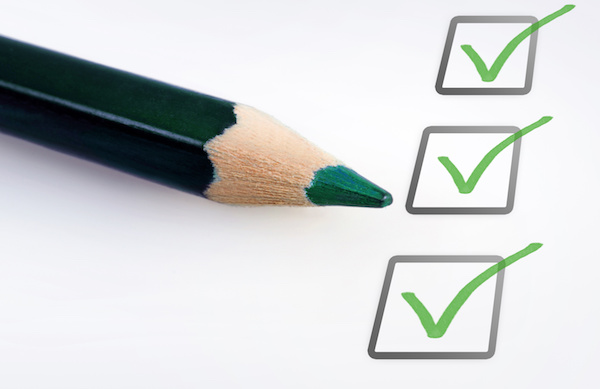The April 17 tax deadline for 2018 is just around the corner. If you’ve left your tax prep until the last minute, chances are that you’re scrambling to make sure you have everything in order. While there is still enough time left to finish your taxes without error, it’s important that you gather the right materials, receipts, and other important documents to ensure you don’t make any common tax mistakes. With many years of combined experience, the team at France Law Firm is here to help make sure you’re ready to file in time to meet the tax deadline this year.
Prepare for Tax Season with Our Last Minute Checklist
Whether you’re sitting down to fine-tune your tax documents or you’ve just now found the time to begin the tax preparation process, there are always last-minute items to consider. By creating a clear and concise prep checklist, you can help to keep the process organized and flowing nicely. With our helpful list of necessary tax items, we make it easy to avoid filing your taxes with forgotten or mismanaged information.
1. Collect Your Business Records
Before you can begin crunching numbers, you’ll need to have all of the proper paperwork ready. Take the time to go through and gather all of your important business records include anything that affects your business expenses and earnings. If you use software or a spreadsheet to stay organized, you should be able to input the information directly into your tax return.
2. Meet with Your Bookkeeper
While most bookkeepers do not prepare tax forms, they already have much of the information you’ll need when filing your federal income taxes this year. If possible, schedule a meeting with your bookkeeper to go over your books and ensure that all of your accounts are fully reconciled. Knowing what your books look like will only help to make the tax process go more smoothly.
3. Update Your Mileage Log
Do you use your personal vehicle for business? If so, deducting the standard mileage rate may actually help you save more than if you choose to pay for vehicle expenses over the course of the year. But to do so you’ll need to accurately track your mileage. Skip the pen and paper in favor of a handy smartphone app for easy access and bring in a copy of your mileage report when meeting with your tax preparer.
4. Which Form Should You Use?
Which tax forms you use will depend on how you use your business. For example, if you are a sole proprietorship, an LLC or you are the sole owner of your business, you can actually report all of your business income to the IRS by using a Schedule C attachment on your personal income tax forms. However, if you are a corporation or you operate your LLC as one, you will need to file a separate corporate tax return using Form 1120.
5. Don’t Forget Out of Pocket Expenses
If you purchased anything for your business using a personal credit card or account, with your personal PayPal account or with personal cash funds, each transaction is likely to count as a legitimate tax deduction. Scanning your personal expenses for any business-related purchases is an important part of preparing to file your taxes, so don’t leave it off of your list!
6. Issue 1099s
Did you make any payments in 2017 that would require your business to file Form(s) 1099? Don’t forget that the IRS requires businesses to issue a Form 1099 to any non-corporate service providers who were paid more than $600 in the given tax year. While there are certain exceptions to this rule –like paying for services with a credit or debit card– you should double check that you have issued all 1099s with your bookkeeper.
File Your Federal Income Taxes with Help from France Law Firm
Want to make sure you haven’t left anything off of the list as you prepare to file your taxes this year? Put your trust in our knowledgeable and experienced tax preparation team in 2018. Call (850) 224-1040 for more information or to schedule an initial consultation.






















